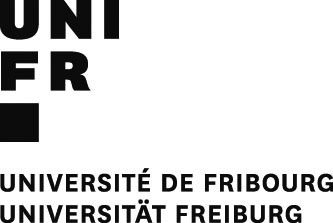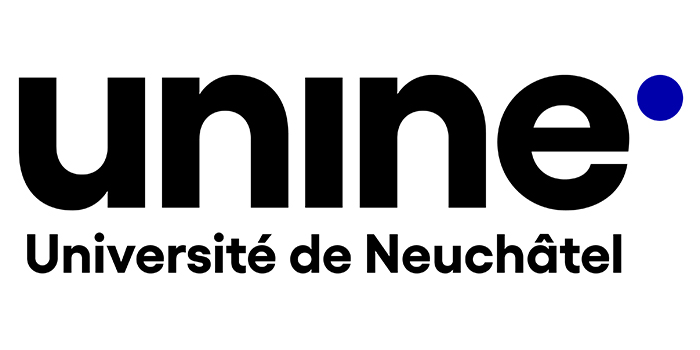Max
Scientific assistant at ETH, PhD student, co-founder of the first Swiss First-Gen Network
Question 1: Do you remember how you decided to pursue higher education in general, and a specific field of study? Who or what influenced your decision?
Basically, I was in high school after getting good grades in primary school. I started my educational journey in Germany, completed my Abitur (Matura), and then came the question: what next?
In my environment, many people pursued vocational training. Studying was never a topic for me, and university was more of an abstract institution during my Abitur, not part of my reality. After graduation, I worked with my father on construction sites to gain practical experience, but it didn’t go well—I was clumsy with my hands.
After talking with my parents, the idea of studying came up. It was unclear at first, but we decided to give it a try. My parents, who came to Germany due to the Yugoslav wars, never had the chance to study, so they encouraged me. I applied for a psychology degree, thinking I wouldn’t get accepted. Surprisingly, I did—and I started my studies.
Question 2: How did you experience the beginning of your studies? How did you feel and adapt at first, and how was it during your studies?
At first, I felt like I was there, but not really part of it. Especially in psychology, I quickly interacted with people from more privileged backgrounds. Not that I was underprivileged, but they had more advantages. Small things made me feel something was off.
Comments like “I did Work and Travel in Australia over the summer” made me realize that such experiences were outside my world. But I also met people who were like me, on the same level, doing cool things. These small differences added up and gave me the feeling we came from different shores—though I couldn’t name mine.
Ideas like a gap year or volunteering never occurred to me. No one would’ve said no, but they weren’t part of my reality. For me, finishing school meant finding the next job. That’s life—you finish one job and move to the next. I didn’t face negative comments, but I felt different. I expressed this difference by wearing sweatpants to university, as a way to say “I’m not like you.” In hindsight, it was a coping mechanism.
Integration-wise, the first semester went well. I never felt excluded, just that I had a different perspective. By the end of the second semester, I felt I had arrived. I thought I understood how the system worked—though I only thought I did.
A major shift came when I realized the university offered opportunities for personal growth. Volunteering or joining clubs used to seem nerdy, but at university, I saw how fun and meaningful it could be. That realization shaped my student life.
The Arbeiterkind.de group in Konstanz, founded during my second or third semester, helped immensely. It gave me a space to talk about topics like family attitudes toward education, what studying means, when to graduate, and what comes next. Being overwhelmed by choosing seminars or planning the future was common.
I thought I was in the game, but not quite. Once I understood how university worked, I became unsure about balancing it with family. Toward the end, the uncertainty returned—what comes after the bachelor’s degree?
Question 3: You mentioned your family was supportive at the start. But later, you had to manage both studies and family. What do you mean by that?
One aspect is financial—studying costs money. My parents never said they couldn’t afford it, but it was clear I had to work. The topic never came up—I just worked.
I was lucky with Bafög (student financial aid); the scholarship was a lifesaver. But beyond money, no one knew what studying meant, yet it became part of reality. When I said studying was stressful, I’d hear: “Why complain? I work 8 hours a day on construction. Do you want to end up like me?” I didn’t—but I wanted space to say I was exhausted.
The lack of understanding about how exhausting studying can be was tough. The uncertainty was also hard—university is less structured than school. It took me ages to realize it’s okay to skip lectures. Until the third or fourth semester, I went to every class because it was on my schedule—even though no one cared if I showed up.
Another aspect was the distance from my family in terms of relevance and topics. My parents valued having a car; I preferred saving money. Discussions weren’t part of our family culture, but they were central in university.
University immerses you in an intellectual world where topics like gender and post-migrant society matter. These often led to misunderstandings with my parents, who’d say, “Here comes the educated one.” It took time to navigate that.
Question 4: You mentioned financial issues. Can you give examples of how they may have affected your studies?
I think one thing I only understood in hindsight, which shaped the financial aspect for me, was the need to stick to the standard period of study. From the beginning, it was clear to me that I had to complete my degree within the regular timeframe, because otherwise I would lose my scholarship—and without the scholarship, there would be no Zoran at university.
That’s why things like a semester abroad or an extension were never an option. It was simply understood that I would finish within the standard period. An anecdote about this: in the third or fourth semester, a re-evaluation of my Bafög (student financial aid) took place, and suddenly I was told I would only receive €180. That completely threw me off for three weeks until it turned out to be just a clerical error. This uncertainty triggered existential fears. Working alongside my studies was normal for me, and I didn’t know university life without work. That meant I had to organize my time well.
Regarding the standard period of study, I knew that Bafög could be extended if there were valid reasons, but the definition of “valid” was unclear. Volunteering would have been a valid reason, but that was outside my realm of experience. Applications were often intimidating and incomprehensible, and I was lucky that my mother worked in administration and could help me. Removing unnecessary barriers is important.
Question 5: What was your experience after your first degree, and how did you plan your next steps?
After my first degree, I realized that I had only seen my studies as a checklist of ECTS credits to complete. I had neglected the fact that you can actually shape your academic journey. Others had done internships and knew which direction they wanted to go, while I had no idea. That’s why I decided to do a master’s degree—because I still didn’t know where I wanted to go.
At the time, psychology only offered one master’s program, so I had no other option. It was only later that I realized I could have done a master’s in another field. During the master’s, I had more contact with researchers and other people who showed me new paths. Still, I never felt truly comfortable in psychology, but I stayed on that path.
My family couldn’t really help me, because they didn’t know how to support me. Friends often already had clear goals, while I was still uncertain. In hindsight, a gap year after school would have done me good—to mature as a person and better shape my studies.
Today, I’m doing a PhD at ETH. For me and many others with a first-generation background, the PhD is the highest academic degree and a logical next step. I didn’t know what job would suit me, but I enjoyed research, so I gave it a try. Maybe I just wanted to write this story into my life.
After the master’s, it was clear to me that I had to continue immediately. That’s typical thinking from a working-class background, where life means working. I had no clear idea what a psychologist does outside of university, but the daily experience at university was familiar to me.
Question 7: What are your tips for first-generation students?
One piece of advice I would give myself is to take your time and be kinder to yourself. It’s important not to stress too much if you don’t have a plan, even when others seem to have everything under control.
Another paradox is that when you celebrate being First-Gen, you start giving that background less weight. It helps to explain yourself without assigning blame, and it reduces the impact of that background on your life.
Shape your studies and take the opportunity to do things that might seem pointless. The most beautiful experiences often come from trying something new. Whether it’s a painting course or additional philosophy classes—just give it a try.
It’s important to seize opportunities and not overthink everything. You have to find the balance between things that come your way and those you actively pursue. Often, it’s less bad than you think.
Networking and exchanging ideas with others who share a similar background are incredibly valuable. These encounters can be crucial for gaining information and support. People and organizations that understand this background are extremely important for your journey.
In the name of equal opportunity: take those scholarships.
Enjoy your studies. And financial support makes that enjoyment possible, because you’re less burdened by money worries. Take advantage of everything you’re entitled to.
Explain to your parents what studying really means—it’s a tough job.










